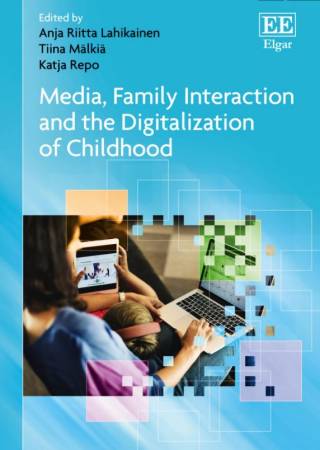T his is a first-class repository of new knowledge on how media and family routines intertwine in daily interactions. The multi-method approach reveals how varying forms of media affect the interaction between children and their parents. Avoiding criticism of these interactions, the contributors instead offer an impartial view of the natural occurrences in media-related family life.
his is a first-class repository of new knowledge on how media and family routines intertwine in daily interactions. The multi-method approach reveals how varying forms of media affect the interaction between children and their parents. Avoiding criticism of these interactions, the contributors instead offer an impartial view of the natural occurrences in media-related family life.
The first section of the book maps contemporary family life by providing methodological, theoretical and time‑use reflections on media use and family communication. It goes on to reach into the private zone of family interaction through video-documented episodes, providing the reader with detailed interactional analyses. This exposes how the boundaries between virtual interaction and face-to-face interaction have become blurred. Offering a comprehensive picture of the complexity of digital family life, this book exposes the challenges and opportunities of modern parenting.
Discussing largely unexplored phenomena that are applicable internationally, this book will appeal to a wide range of researchers and students in the fields of social sciences. Professionals such as psychologists, therapists and social workers will also benefit from the impartial insight this work gives into the media’s impact on modern family interaction.
Edited by Anja Riitta Lahikainen, Professor Emerita of Social Psychology, Faculty of Social Sciences, University of Tampere, Tiina Mälkiä, Postdoctoral Researcher and Katja Repo, Director, Tampere Centre for Childhood, Youth and Family Research (PERLA), Finland.

